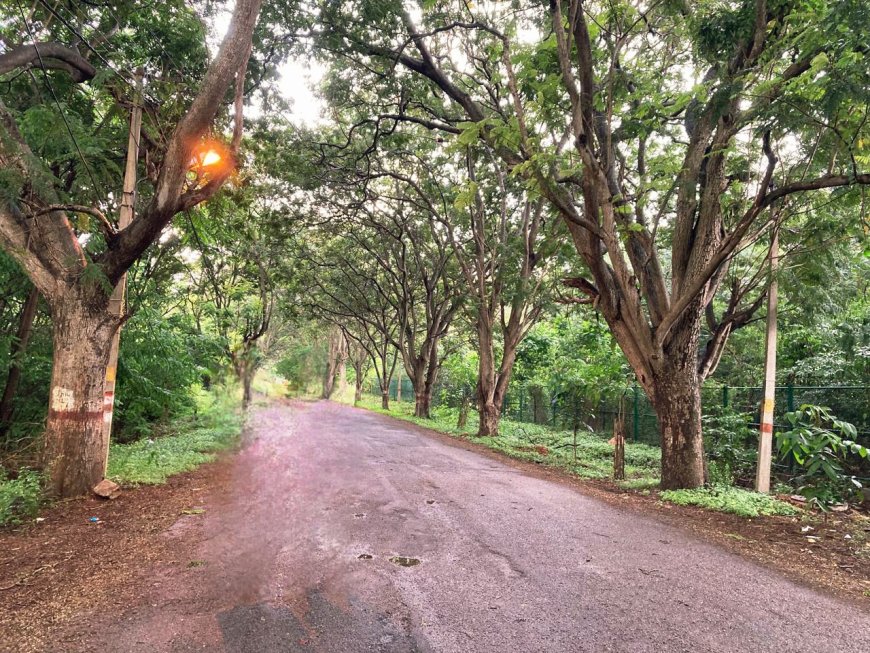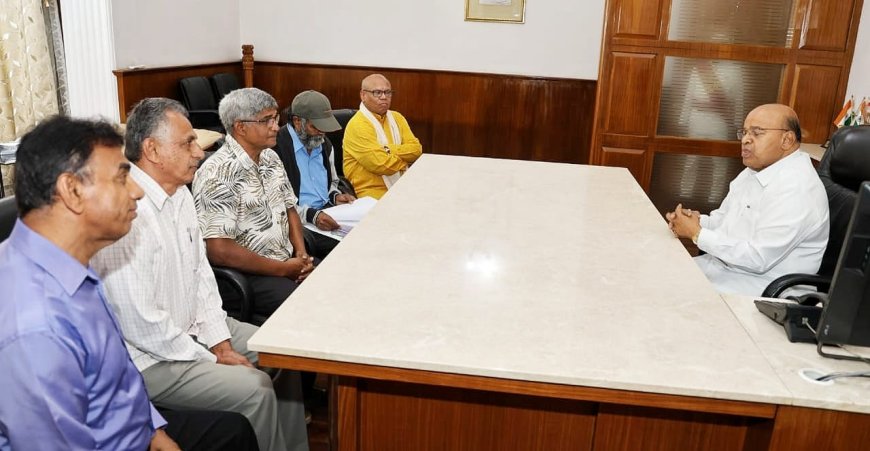“Save Jnanabharathi Biopark”: Biodiversity Destruction in Bangalore University Campus Sparks Public Outcry
Jnanabharathi Biopark Under Threat: Citizens Urge Governor to Halt Rampant Green Destruction. Appeal seeks urgent protection of 660-acre biodiversity zone in Bangalore University


Delegation led by Renuka Prasad, Subramanyam, Satyanarayana Bhat, Ganapathi Bhati and Activist Joseph Hoover submitted a memorandum to HE Governor Tawar Chand Gehlot.
Bengaluru | June 14, 2025:
A growing chorus of concern has emerged from citizens, environmentalists, and academics over the alleged destruction of the Jnanabharathi Biopark, located within Bangalore University — one of the city's largest and most ecologically rich green spaces.
An appeal has been made to the Hon’ble Governor of Karnataka by Jnanabharathi Vayuviharigala Sangha, urging his immediate intervention to stop what is being called a “slow but deliberate ecological assault” on the 660-acre biodiversity haven.
'Uncancelled Registrations' Raise Red Flags
According to the appeal, the University Syndicate had passed a resolution to cancel certain controversial land registrations, forwarding it to the state government for further action.
However, the registrations remain in force. Of particular concern is an alleged additional registration reportedly carried out during the COVID-19 lockdown, which has also not been reversed, raising questions about administrative inaction.
Construction Projects Threaten Native Flora
The petitioners allege that a building is being constructed behind the UVCE Civil Block, of the Biopark, which houses well-grown native and recently planted species like mahogany and Teregaon mango varieties.
They also raise alarm over the 50-acre Sahyadri Vana, gifted to UVCE and rich in plant species native to Western Ghats ecosystems such as Kodlipet, Ankola, and Thirthahalli. Despite the formation of an expert committee of Botany, Environmental Science, and Biotechnology experts — as per the Governor’s directive — the committee’s report recommending full protection of this area has allegedly not been acted upon by the University, nor forwarded to the government.
“The University has not responded to the expert report for reasons best known to them,” the appeal notes, pointing to what the petitioners describe as non-compliance.
Forest Department Land Now a Construction Zone
The area in front of the Registrar (Evaluation) building, originally under the Forest Department, has been earmarked for new construction. Citizens are urging authorities to shift such developments to non-forest zones, stating that vertical expansion of existing infrastructure would eliminate the need to raze untouched green cover.
Recognition vs. Neglect: Hyderabad vs. Bengaluru
While institutions like the University of Hyderabad have been awarded Platinum-Ranked Green University status, the appeal states that Bangalore University risks falling behind, owing to poor ecological stewardship.
They urge that steps be taken to qualify Bangalore University for similar recognitions — but not at the cost of forest destruction and biodiversity loss.
Call for Heritage Site Status under Biodiversity Act
The appeal acknowledges the Hon’ble Forest Minister’s efforts to declare Jnanabharathi as a Heritage Site under the Biodiversity Act, 2002.
Petitioners now request this citing the area’s immense ecological and environmental value.
“The climate emergency in Bengaluru is no secret. This is the largest lung space and water harvesting zone for our city. Its destruction will be an irreversible tragedy,” the appeal warns.
“This is not just academic land. It is our city’s ecological soul — a potential Shantiniketan of the South. Future generations will remember who saved it… or who failed it,” they add.
Demands Made
* Immediate cancellation of all alleged irregular land registrations, especially those during COVID.
* Halt all construction within forested and biodiversity-rich areas of the Biopark.
* Implement expert committee report recommending full protection of Sahyadri Vana.
* Shift new buildings to non-forest zones and explore vertical infrastructure growth.
* Efforts to declare Jnanabharathi a Heritage Site under Karnataka Biodiversity Act, 2002.
* Take steps to earn green university recognitions without harming the environment.

 Chetan R @ vēritās news desk
Chetan R @ vēritās news desk